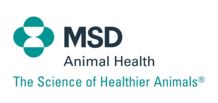



Medical Card Highlights Farm Zoonoses
UK - A new medical health card, created by the Women’s Food & Farming Union (WFU), has been produced in order to educate farmers and those working with livestock of the possible animal diseases that can also infect humans. The card also aims to inform GPs of the possible diseases and what they should look out for.The card was created thanks to the financial support from leading animal health company, Intervet/Schering- Plough Animal Health. Those working with livestock are being urged to pick up the free medical contact card at county shows across the UK this summer.
Originally produced over 10 years ago by the Devon WFU, the card was modified in 1992 and 2010 and now, in 2011, has been reprinted due to popular demand.
The pocket-sized card describes the typical routes of disease transmission, symptoms of zoonotic (animal-borne) illness in humans and protective measures that can be taken by stockpeople. Useful sources of medical advice – with contact telephone numbers – are also included.
“When the card was re-launched last year, we received hundreds of enquiries from the farming community. So many people working with livestock seem to know someone who has had an animal-borne illness, but a great many have had problems getting a prompt and definitive diagnosis from their GP; and this can often make the difference between life, death, long-term ill health or a full recovery. On many occasions we have felt like counsellors at the end of a ‘phone, and we hope the cards will help to better inform everyone to the potential threat of disease transmission from livestock to humans”, said initiative co-ordinator Lynn Askew from the WFU.
Dr Marina Morgan, consultant medical microbiologist from the Royal Devon & Exeter Hospital, helped advise on the content of the contact card and stated how better information and understanding can help lead to the early diagnosis and correct treatment of zoonoses which could therefore prevent serious and potentially life-threatening complications.
“Cattle-associated leptospirosis (Leptospira hardjo), for example, is a classic example. Caused by direct or indirect contact with infected urine, the first symptoms often include flu-like illness and headache. But if the disease goes undiagnosed some cases can develop more serious, even life-threatening infection. For example, jaundice, kidney failure and meningitis can develop.”
The medical contacts cards will be available on WFU stands at various agricultural shows around the UK this summer. The cards are also available from specialist agricultural PR and marketing services company ABC. Call 01694 731777 to request one. Alternatively, visit the WFU website at www.wfu.org.uk
| TheCattleSite News Desk | More MSD Animal Health News |



